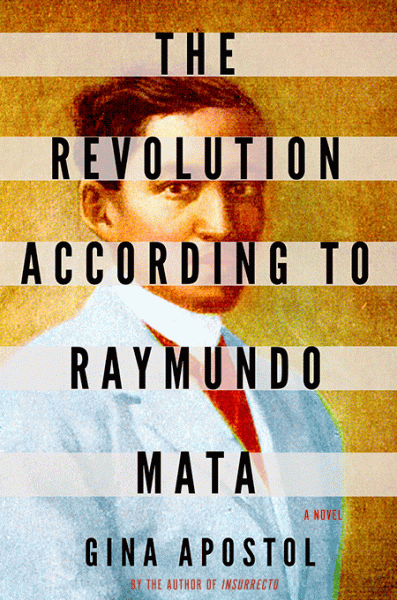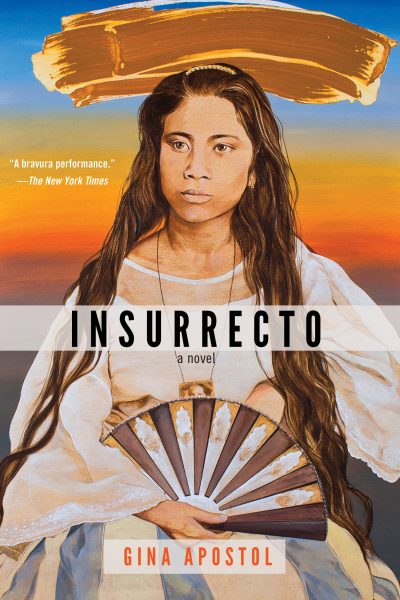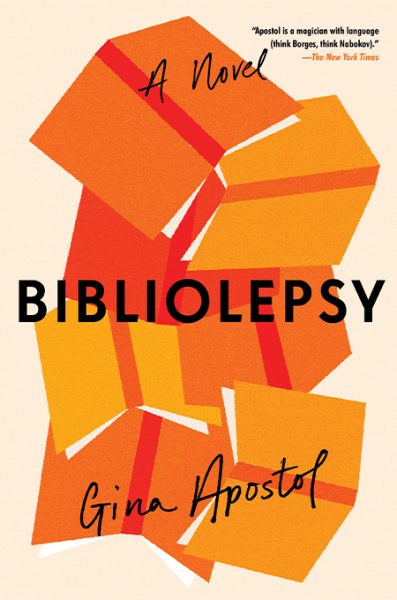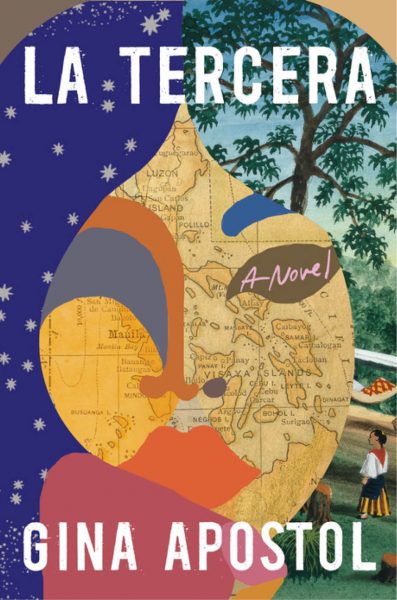Pricing
Hardcover $27.00
eBook $14.99
Description
The first ever US publication of Gina Apostol's Philippine National Book Award–winning novel.
Raymundo Mata is a nightblind bookworm and a revolutionary in the Philippine war against Spain in 1896. Told in the form of a memoir, the novel traces Mata’s childhood, his education in Manila, his love affairs, and his di...
The first ever US publication of Gina Apostol’s Philippine National Book Award–winning novel.
Raymundo Mata is a nightblind bookworm and a revolutionary in the Philippine war against Spain in 1896. Told in the form of a memoir, the novel traces Mata’s childhood, his education in Manila, his love affairs, and his discovery of the books of the man who becomes the nation’s great hero José Rizal (Rizal, in real life, is executed by the Spaniards for writing two great novels that spark revolution—the Noli Me Tangere and El Filibusterismo. At the time Rizal died, he was working on a third novel, Makamisa).
Raymundo Mata’s autobiography, however, is de-centered by another story: that of the development of the book. In the foreword(s), afterword(s), and footnotes, we see the translator Mimi C. Magsalin (a pseudonym), the rabid nationalist editor Estrella Espejo, and the neo-Freudian psychoanalyst critic Dr. Diwata Drake make multiple readings of the Mata manuscript. Inevitably, clashes between these readings occur throughout the novel, and in the end the reader is on a wild chase to answer enduring questions: Does the manuscript contain Makamisa or is it Makamisa? Are the journals an elaborate hoax? And who is the perpetrator of the textual crime?
In this story about the love of books, the story of a nation emerges. But what is a nation? What The Revolution According to Raymundo Mata imagines is that through acts of reading, a nation is born.
Media
“Gina Apostol tells our revolutionary history—or fragments of our history—using a pastiche of writing from the academe, a diary, stories within stories, jokes, puns, allusions, a virtual firecracker of words. Her novel is fearlessly intellectual, anchored firmly on the theories of Jacques Lacan. But it is also funny and witty as it picks—lice, nits, and all—on the hoaxes in our history. It affirms, if it still needs to be affirmed, the power of fiction to shape and reshape the gaps in the narratives of our history as a nation. The main character here is History, and its protagonist, Imagination. For this audacious sword-play of a novel, the National Book Award is given to Gina Apostol’s The Revolution According to Raymundo Mata.”
—Judges' Citation, Philippine National Book Award
“Virgil should offer libations to the gods in thanksgiving that Gina Apostol writes about the Philippines’ founding stories instead of Rome’s. Her latest novel to appear in the United States, The Revolution According to Raymundo Mata, wreaks playful and learned havoc on the life and work of the 19th-century writer Jose Rizal . . . [Apostol] writes historical fiction like Hilary Mantel on acid.”
—Randy Boyagoda, The New York Times Book Review
“Apostol’s novel requires us to sit up, lean in, and study. It demands our active participation. In the end, The Revolution According to Raymundo Mata is intended for a Filipino audience first—with inside jokes, play on words, and regional references—and American audiences second. And that’s a definitive reason to pick it up. Apostol holds a mirror to American exceptionalism and forces us to look.”
—Ploughshares
“[A] genre-bending historical novel that blurs the line between fact and fiction, presented as the memoir of Raymundo Mata, a 19th-century revolutionary who crosses paths with famed Filipino writer and national hero José Rizal, complete with feuding annotations from a nationalist editor, a psychoanalyst, and a translator.”
—BuzzFeed
“Gina Apostol’s The Revolution According to Raymundo Mata weaves the complex tangle of Philippine history, literature, and languages (along with contemporary academic scholarship) into a brilliant tour de force of a novel. Brava!”
—John Barth
“Edward Said wrote that the role of the intellectual is to present alternative narratives on history than those provided by the ‘combatants’ who claim entitlement to official memory and national identity—who propagate ‘heroic anthems sung in order to sweep all before them.’ In this fearlessly intellectual novel, Gina Apostol takes on the keepers of official memory and creates a new, atonal anthem that defies single ownership and, in fact, can only be performed by the many—by multiple voices in multiple readings. We may never look at ourselves and our history the same way again.”




